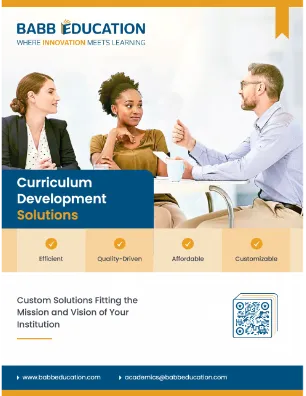Your Babb Education team of instructional designers and expert course builders are experienced and equipped to handle all types of open education resources (OER) and many types of assessments.
One that is more commonly referred to today is known as renewable assignments, also known as renewable assessments. There are two types of renewable assessments. One type of assessment allows students to revise and resubmit their work multiple times in order to improve their grades. The second type is to create assignments which they can "renew" or update for the professional environment during their course. This is often used in higher education, particularly in courses that require students to develop complex skills or knowledge over time or share that work with others in the field.
The idea behind renewable assignments is to encourage students to engage with the material in a more meaningful way and to take ownership of their learning. By allowing students to revise their work, instructors create a feedback loop that promotes learning and growth. By encouraging students to share their work outside the classroom (for example on a portfolio site, LinkedIn or other platforms common in their profession) students see immediate real world applicability of their effort.
There are many benefits to using either type of renewable assignments. One related to the ability to iterate their work is that it provides students with an opportunity to improve their work through a continuous feedback model. This can be especially helpful for students who struggle with a particular topic or who may have difficulty with academic writing. By giving them the chance to revise their work, instructors can help these students to better understand the material and to develop their skills over time. We can build this into the course as faculty subject matter experts or instructional designers.
Another key benefit of renewable assignments is that they may encourage some students to take risks and to experiment with new ideas because they know they may have an opportunity to revise their work, try a new approach, and still improve their grade. When students are only grade centric, they may become fearful to submit anything outside the box, which inhibits learning. This can lead to more creative and innovative work, as students are able to explore different ideas and to push their own boundaries.
Faculty or Instructional Designers that choose renewable assignments posted on a third-party platform still have an opportunity to encourage students to share the work, discuss it in a classroom discussion forum, and receive feedback by posting an external link into the assignment submission dropbox.
There are challenges associated with renewable assignments. One is the amount of time and effort that instructors need to put in to provide meaningful feedback to students and then repeatedly re-grade the work. In order for that type of renewable assignment to be effective, instructors need to be able to provide detailed and specific feedback on each submission. This can be time-consuming because it may be repeated more than once.
On the other hand, renewable assignments that are posted onto a third-party site are not given the opportunity for revision and students may see the real world benefit of their work right away with no additional time spent on the part of the faculty member. One drawback is that not all faculty and not all students are open to using third-party sites due to privacy reasons.
Despite these challenges, renewable assignments are a powerful tool for promoting student learning and growth. By giving students the opportunity to revise their work, instructors can help to create a more supportive and nurturing learning environment, and they can encourage students to take ownership of their learning. By encouraging students to put work into a professional platform, they are encouraging feedback from professionals as well as their instructor and benefiting from an online portfolio.
We would be delighted to help you create new courses or edit existing ones to implement this assignment methodology if you feel it would be a good fit for your courses!



